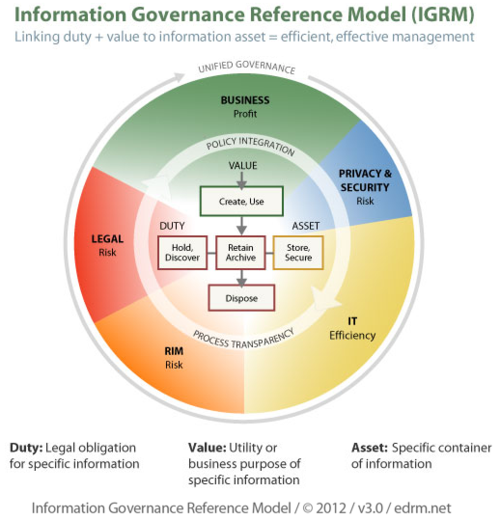EDRM Announces Version 3 of the IGRM for Information Governance – eDiscovery Trends
EDRM Announces Version 3 of the IGRM for Information Governance – eDiscovery Trends https://cloudnine.com/wp-content/themes/cloudnine/images/empty/thumbnail.jpg 150 150 CloudNine https://cloudnine.com/wp-content/themes/cloudnine/images/empty/thumbnail.jpg
This week, the Electronic Discovery Reference Model (EDRM) Project, through its Information Governance Reference Model (IGRM) Project, announced today the release of version 3.0 of the IGRM. As their press release notes, “The updated model now includes privacy and security as primary functions and stakeholders in the effective governance of information. This release of the IGRM reflects broad industry support and collaboration across the expert communities of ARMA International and CGOC (Compliance, Governance and Oversight Council).”
read more





